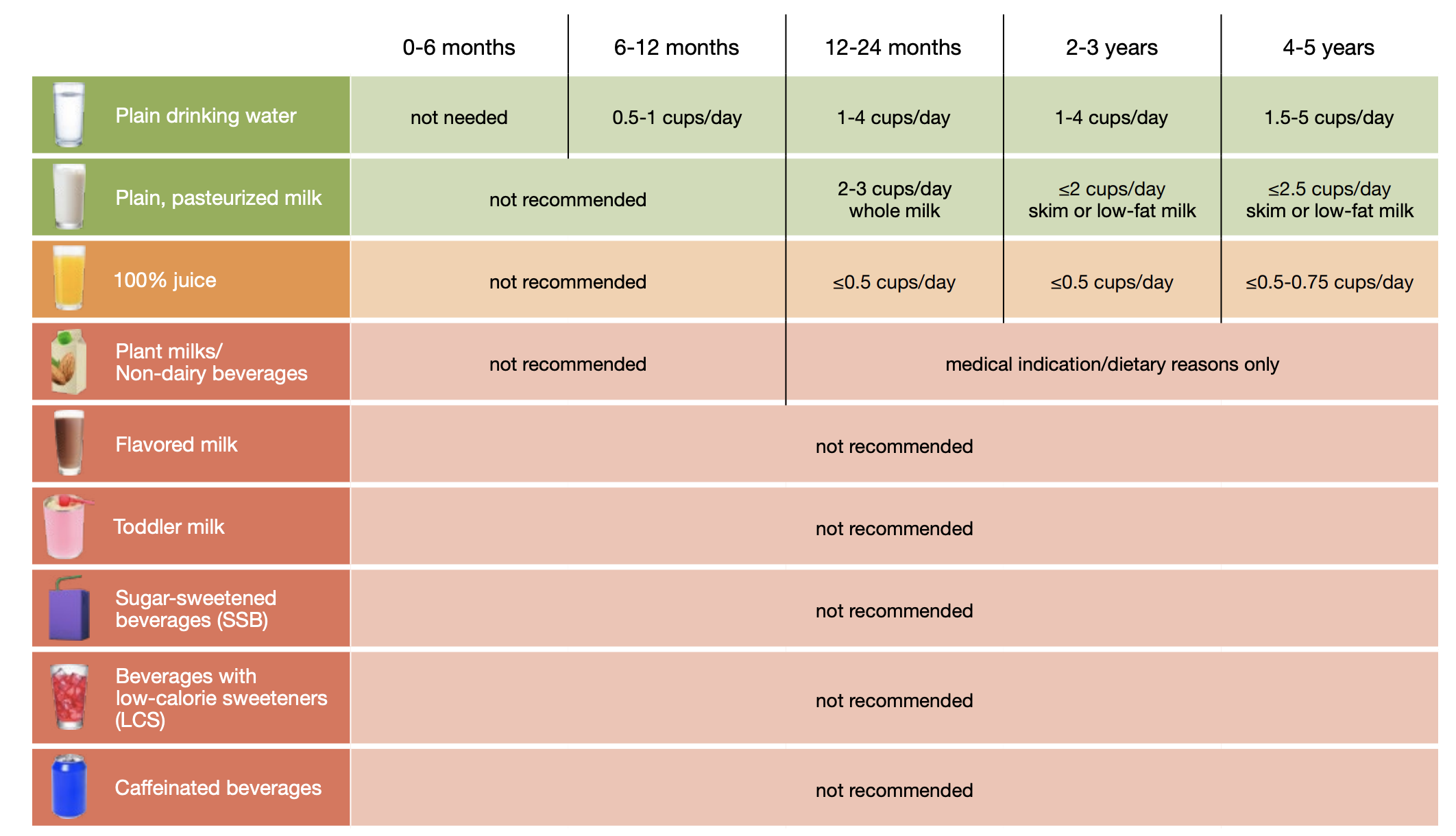Think 100 per cent fruit juice is fine? Think again.
Four national health and nutrition organisations in America have joined forces to release a report on what constitutes healthy beverage consumption in early childhood.
The recommendations from the four organisations—the Academy of Nutrition and Dietetics (AND), the American Academy of Pediatric Dentistry (AAPD), the American Academy of Pediatrics (AAP) and the American Heart Association (AHA)—are designed to help children develop healthy dietary patterns and prevent chronic disease.
The four types of drinks children should be consuming are:
- breastmilk
- formula
- cow’s milk
- water
The recommendations are a warning against the current trends, which see around two in five Australian children aged 2–17 years (44.8 per cent) consuming either sugar-sweetened drinks or diet drinks at least once per week. In New Zealand, 17 per cent of children aged 2–14 years consumed at least three soft drinks or energy drinks a week.

According to Amanda Muhl, Mums At The Table’s resident accredited practising dietitian, the recommendations from the American study are in line with Australian recommendations.
What about plant milks?
Despite growing popularity and interest in plant milks (such as soy, almond or rice milk), Amanda advises against giving it to children under 12 months as they do not meet an infant’s nutrition requirements. Giving plant milk to children aged between one and five years of age should also be done with caution.
Amanda suggests the following things to keep in mind:
- With the exception of soy milk, plant milks tend to be low in protein, fat and kilojoules. Children require energy and protein to grow and stay healthy, and dairy or dairy alternatives have an important role in helping children to meet their nutritional needs. Soy milk contains similar amounts of protein and energy to cow’s milk so is a good choice if choosing a plant milk.
If choosing plant milk for children, aim for 2.5 grams of protein and 200kJ or more per 100ml of milk.
- Most plant milks are fortified with calcium and vitamins such as vitamin B12 and vitamin D to make them more nutritious and comparable to cow’s milk. However, not all plant milks are fortified so it is important to check the ingredients and nutrition information panel to ensure these are added.
- Plant milks often contain added sugars, while cow’s milk does not. Be sure to check the ingredients list and the nutrition information panel to see if sugar is added and how much. Where possible, choose unsweetened varieties of plant milk.
The problem with fruit juices
While fruit juices may sound healthy, especially the 100 per cent varieties, current recommendations suggest not giving them to children under 12 months, and only sparingly to those older.
“Fruit juices contain high levels of sugar and can therefore provide excessive kilojoules,” says Amanda. “Interestingly, when compared to soft drink, fruit juice actually contains similar amounts of sugar and kilojoules. If you choose to give juice to your child, it is recommended that only a small amount (approximately 125ml per day) of 100 per cent fruit juice be given in a cup rather than a bottle or sippy cup. It can be given as part of a meal or snack, and it is also a good idea to dilute the juice with water.”
Instead of giving children fruit juices, Amanda suggests giving them whole pieces of fruit since they contain more fibre and nutrients, are more filling and less likely to cause tooth decay and contribute to obesity.
Toddler milk: the unnecessary drink
Parents of formula-fed babies are familiar with the transition from step one (or newborn) formulas to step two (or infant), and finally, step three (toddler). While it may sound like a natural progression, Amanda says that from 12 months of age, toddler milks are not required for healthy children who are eating a varied diet.
“Children are able to meet their nutrient requirements when they are eating a variety of foods, including wholegrain breads and cereals, fruit, vegetables and legumes, dairy and dairy alternatives,” she says. “Full cream cow’s milk can be introduced into a toddler’s diet from 12 months and is a good source of protein, energy, calcium and other nutrients.”
In other words, toddler milk is nothing but a marketing ploy for parents to spend more money.
How helpful was this article?
Click on a star to rate it!
0 / 5. 0
Be the first to rate this post!
Melody Tan
Related posts
Subscribe
Receive personalised articles from experts and wellness inspiration weekly!


